Brother Conrad Worrill died on June 3. It was a very sad day.
He was a revolutionary who had been at the forefront of the Black Nationalist scene, most notably with the Reparations Movement. He retired as an academician after 40 years at Northeastern Illinois University’s Jacob H. Carruthers Center for Inner City Studies. Dr. Worrill was a professor, director, and department chair.
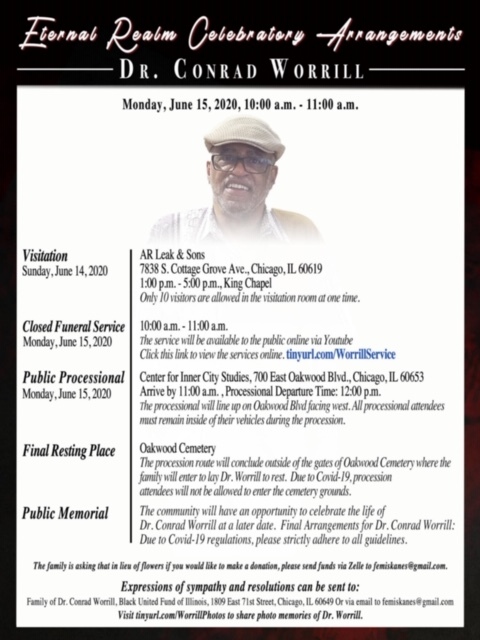
Conrad was an educator with an historical photographic memory. He could and did quote chapter and verse as he provided historical perspectives on everything. Worrill was a renaissance man of the sorts: scholar, educator, community organizer, political pundit, advisor, consultant, newspaper columnist, radio personality, activist, professor, husband, brother and father.
He educated thousands and was proud to see his students become professors, college presidents, deans, and principals at educational institutions throughout the country. Conrad was a Malcolm X devotee. He worked in the forefront and behind the scenes with deliberation and army like-precision.
He was a leader, a thinker, an educator, but most of all, he was an historian and a community organizer. Conrad knew everything about everything and if he discovered something new, he let you know. He gave assignments and he reported on his activity in detail. He really was a mover-shaker.
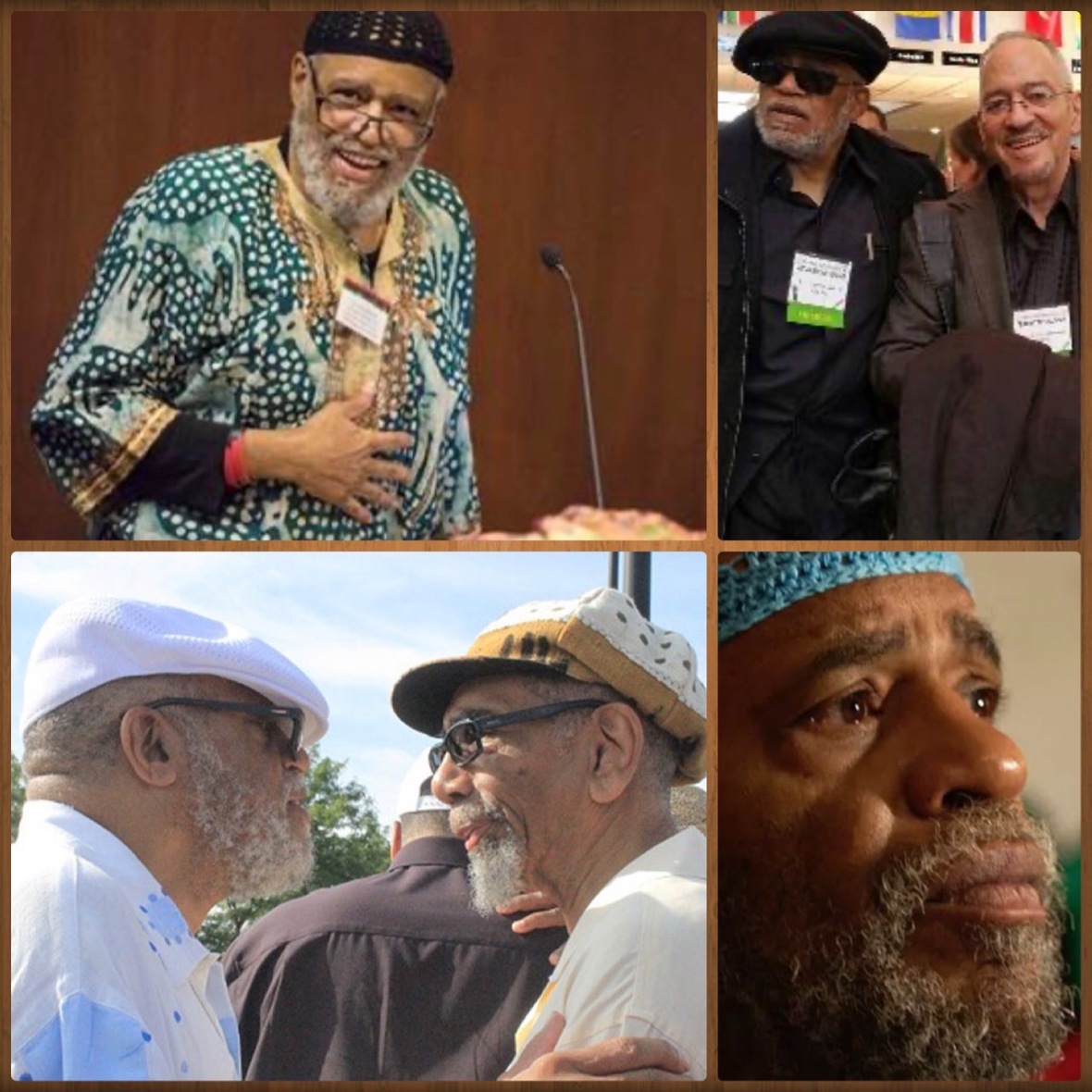
Worrill served in leadership roles in numerous organizations, including the National Black United Front and the Black United Fund of Illinois. He also was active with the National Coalition of Blacks for Reparations in America (N’COBRA) and was a special consultant for the 1995 Million Man March.
Conrad’s father, Walter Worrill, was in the YMCA Movement and in his day, that was the height of the Civil Rights Movement. In the days of segregation, Walter Worrill provided meeting places and lodging for many at the 39th Street Y. Conrad saw first-hand as a child the giants of the day – Jackie Robinson, Paul Roberson, Marian Anderson, John Sengstacke, and a host of others. He often talked about lessons learned from his father and his celebrity interactions as a young boy.
The Worrill family hails from Pasadena, California. They were friends and neighbors with the Jackie Robinson Family. Conrad often spoke fondly and lovingly of Jackie Robinson, saying that he and his brother were the most excellent athletes in more than one sport. Jackie played football, basketball, and tennis, as well as he did baseball.
In Chicago, Conrad attended Hyde Park High School and through the years stayed in contact with many of his high school classmates; they became lifelong friends and a number of them helped Conrad with his many causes.
Conrad was a track star and talked glowingly about the track in high school and what it taught and did for him and others as a sport and recreation.
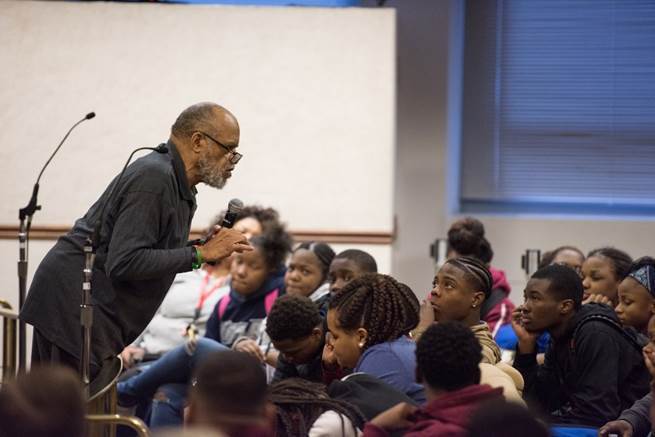
A Key To Harold’s Win
Conrad was a student of leadership, as he steadily perfected his own strategies. The power of Conrad was his reach. He had tentacles everywhere, from politicians to gang members. He could get things done and he did. And his word was his bond.
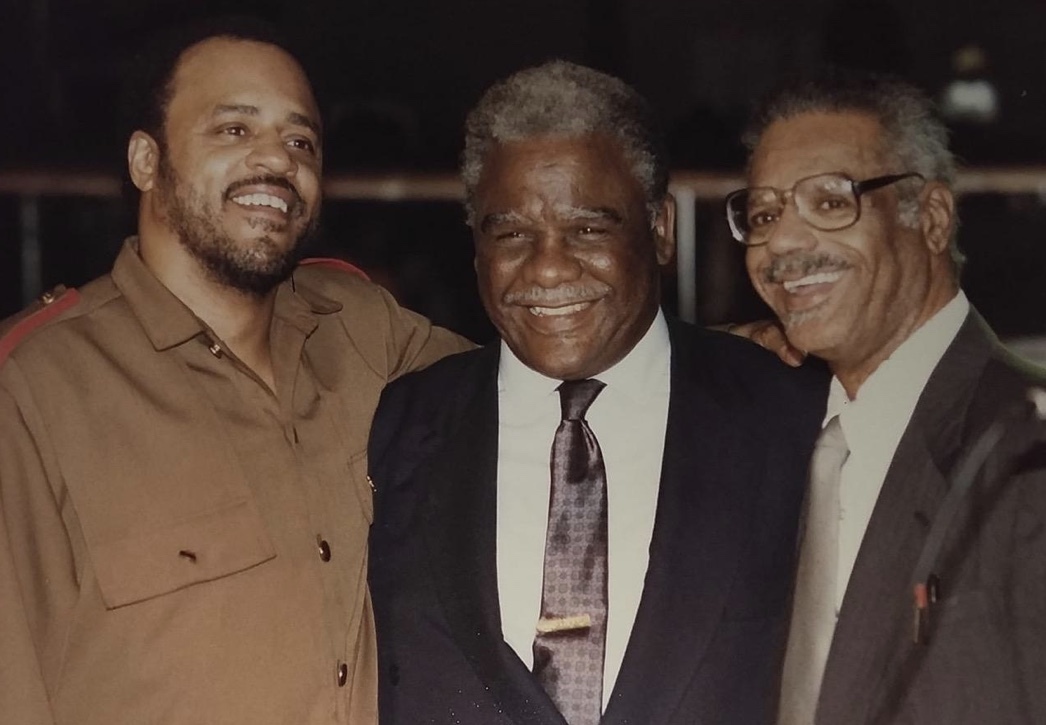
Conrad was instrumental in Harold Washington’s election as Chicago’s first Black mayor. Harold was a master politician, artful at having everybody involved working for his election, even though there might have been a quiet war going on behind the scenes.
Harold was the conductor of the argument and made all feel special and exclusive. During the campaign, Conrad gave me my assignments and would call in the midnight hour to see if the work had been done. A real corporate general he was. I told him often, I don’t report to you, and he would say, but could you just tell me what you did. NO.
We have known each other for many years. We have fought over issues, tactics and political decisions. We have had many choice words, from minute to major. Conrad loved a good fight and was always fighting with loads of surprises.
In the last decade, we became reasonable friends, and then loving friends. While we have argued fiercely to the point of going to the wall and beyond, we were always for the same cause, but perhaps had different approaches or methodologies to reach the goal.
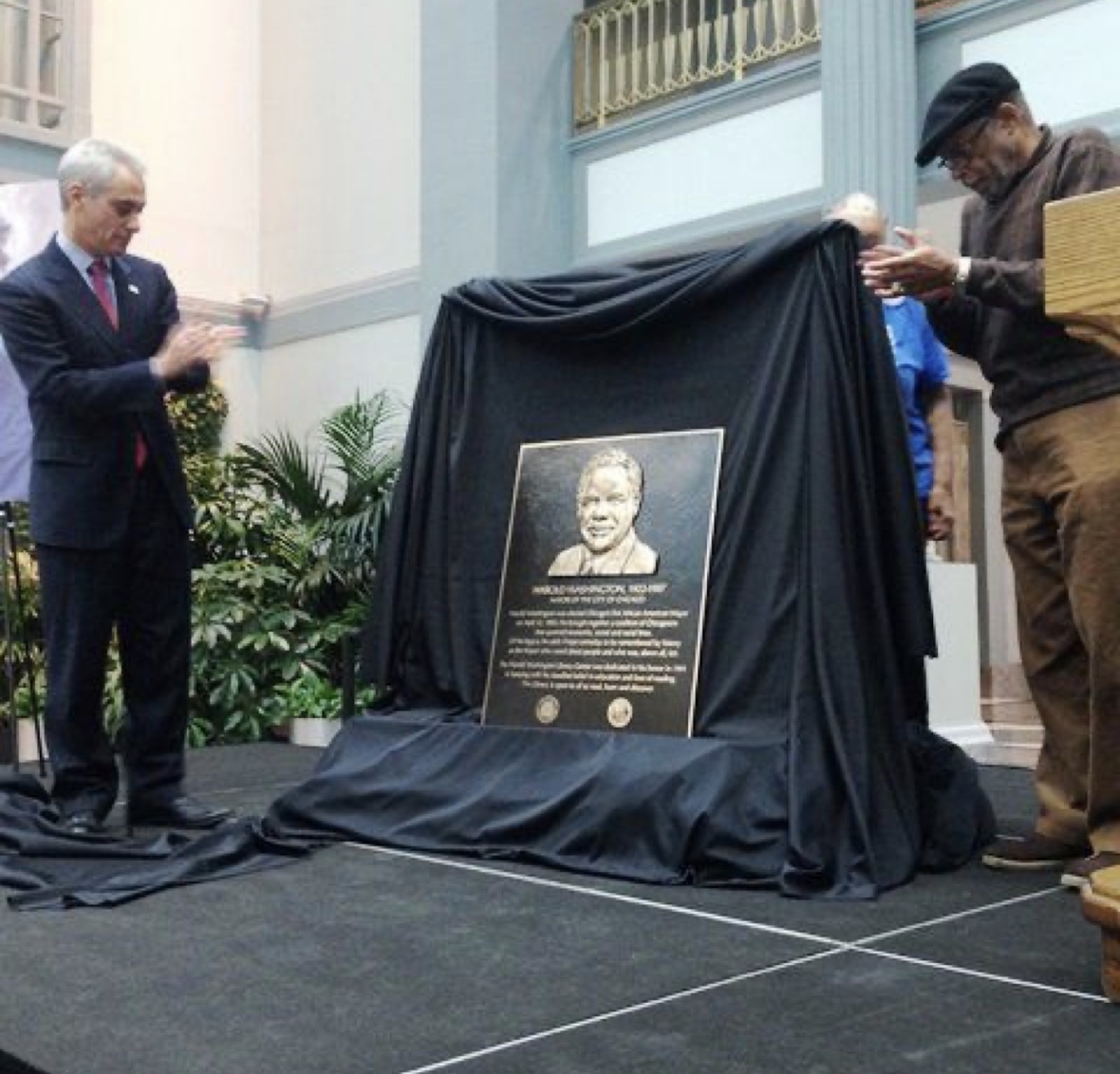
I beat Conrad at a good game of politics often, to the point where he gained respect after we went at it. I gained his respect and he gained mine. I tricked Conrad once into writing a cover story for N’DIGO about Harold Washington and how Harold won the election as Chicago’s first Black mayor.
Conrad was instrumental in Harold’s election, as was political analyst/educator Bob Starks. They were both professors at Northeastern Illinois University’s Jacob Carruthers Center for Inner City Studies. Conrad and Bob had an ongoing professional love affair that ranged from not speaking, to arguing, to grumbling that he doesn’t know what he’s talking about, but they were brothers always working together.

For N’DIGO, I wanted the inside scoop on Harold’s win and the background of the grassroots movement that put him in office. I asked Conrad to write the article. I also asked Bob Starks to write the same article. Neither knew they were co-writing because they argued so much about the real happenings of the election, so I tricked them both into thinking that they were writing exclusively.
When the articles came in, our editor, David Smallwood, blended them into the perfect real story, accounting for the full history of how the people put Harold into office. It remains one of the best articles on Harold’s election to date.

Of course, Conrad balled me out for tricking him, but it was the only way for us to get the real, total story. He was resentful at being outsmarted at first, but through the years, Conrad would bring it up and we’d have a hearty laugh about it!
Conrad’s N’DIGO Gala Honor
The N’DIGO Foundation honored Conrad in 2011 with the N’Community Award at our annual Gala. Conrad was shocked. We had a very long conversation where he said, “I didn’t think you liked me.” I said, “But I respect you and your work; I just get sick and tired of you telling me what to do! Let me honor you in my way and be happy.”
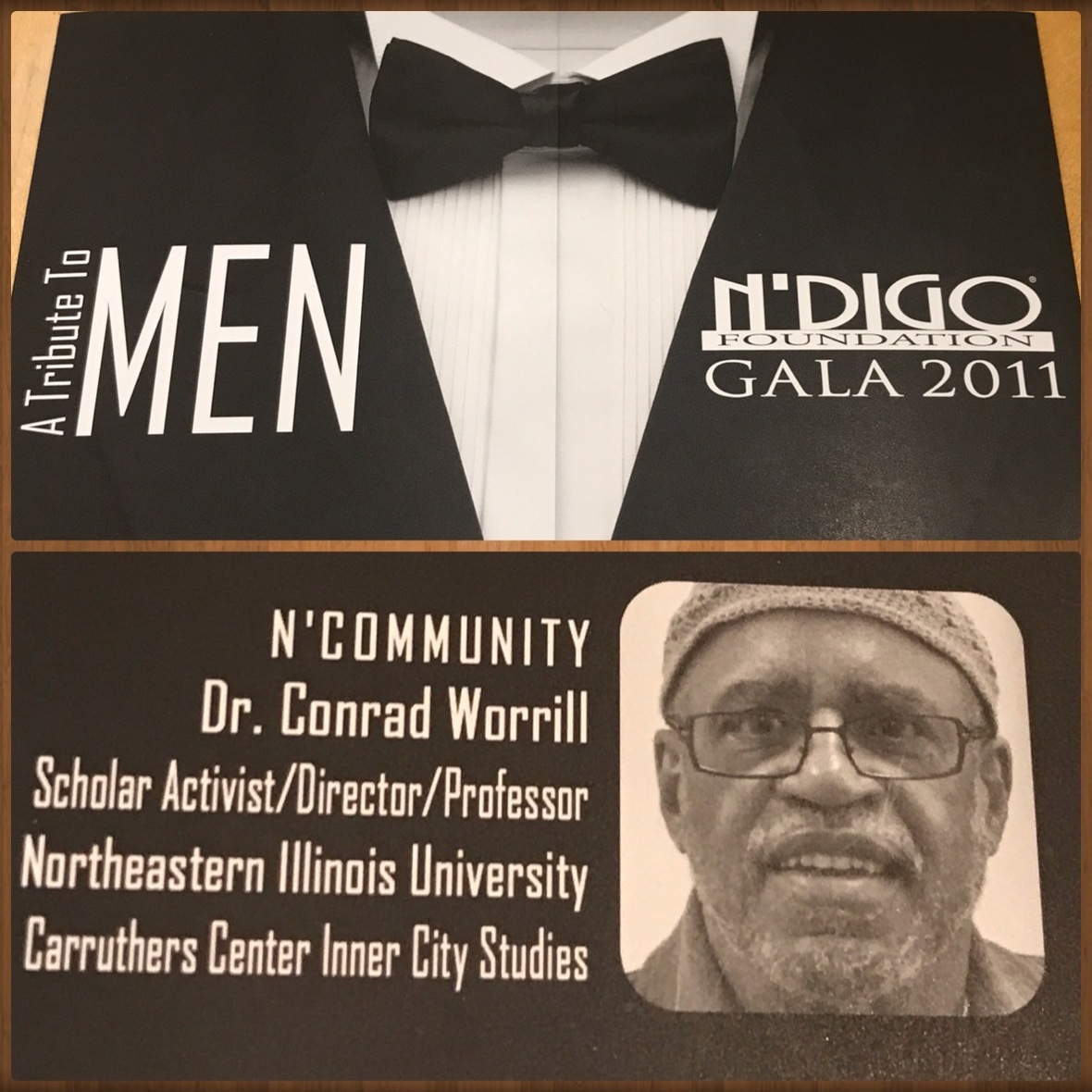
He did and called every day to see how things were going with the Gala. He was so proud. I told him he had to wear a tuxedo that evening. And he resisted with might. I told him he would not be allowed to enter the Chicago Symphony Center if he did not have on his tux.
He was nervous. But he arrived in the most stunning African robe that he said was his new tux. It was a memorable evening. I chased him all evening asking did he have on his tuxedo under the robe garb. And at the end of the evening, I told him he had to leave because he didn’t have a tux. (Smile!)
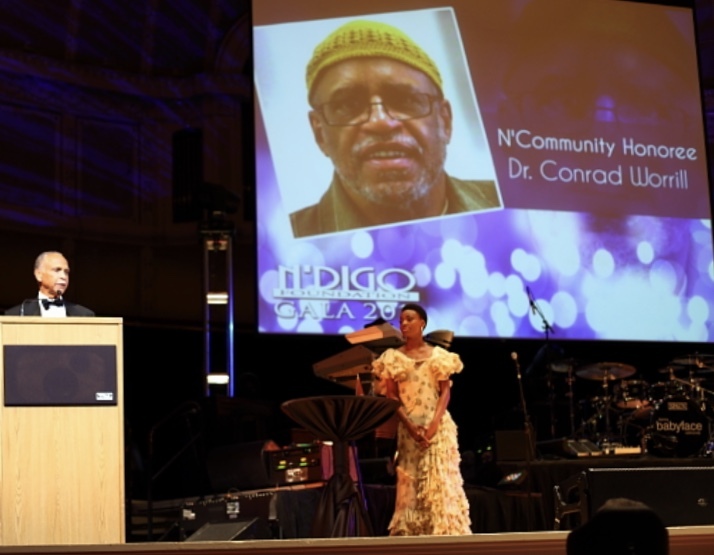
Conrad argued with everybody about anything at all. If you have not had a Conrad cussing, you have not lived. We published our book N’DIGO Legacy: Black Luxe – 110 African-American Icons of Contemporary History two years ago and Conrad’s story is printed in its pages.
I held a party to debut the book and present it to the subjects featured within. Conrad had no idea what he was attending, but I told him he had a real surprise coming and dared him to be late.
He was skeptical about what I was doing, but came to the party for the presentation after I insisted. He was so surprised. He teared up. That night he stayed up all night reading the book and calling me every half-hour as he read from his bed.
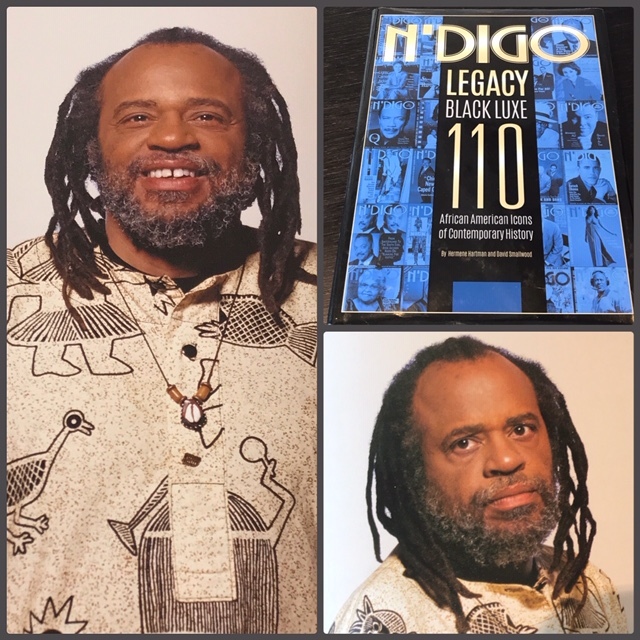
The final call was to say he found a single mistake. I asked him to go to sleep and let’s talk in the morning. Bright and early I called to ask for his critique and comments on the book. I asked about the mistake, but he could not remember or find it again. Perhaps, Dr. Worrill, there is no mistake. He said, it just couldn’t be perfect. He promised to find a mistake, but he never did.
His Track Legacy
For the past year or so, Conrad had been working on his autobiography with a team of writers and editors under the direction of Sister Ife Carruthers. Conrad’s autobiography will be a powerful read with him having the very last word on a number of things that will reveal an interesting history.
While he was a leader in this city for many years, he was also a student. Conrad loved his family. He was so proud to be his daddy’s son and a father to his daughters. He gave his father a fit with his strong will and uncompromising ways, but he always wanted to please him and he did. He was proud of his own family and talked about them constantly. He was a great storyteller, with quite the wit.
Before Conrad passed, he called to talk in his final days. He touched my heart and I cried through the conversations as I paid astute attention. We prayed every morning with scheduled calls. I read to him positive-thinking scripture. The playing had stopped and the conversations were beyond real. He told me he loved me and that we still had work to do. As usual, he had instructions of work to be done. There was the track. He gave me my final assignment.
Conrad’s crowning glory has been his last project. He has worked for the past 37 years on having a world-class track stadium built in Chicago. It is completed.
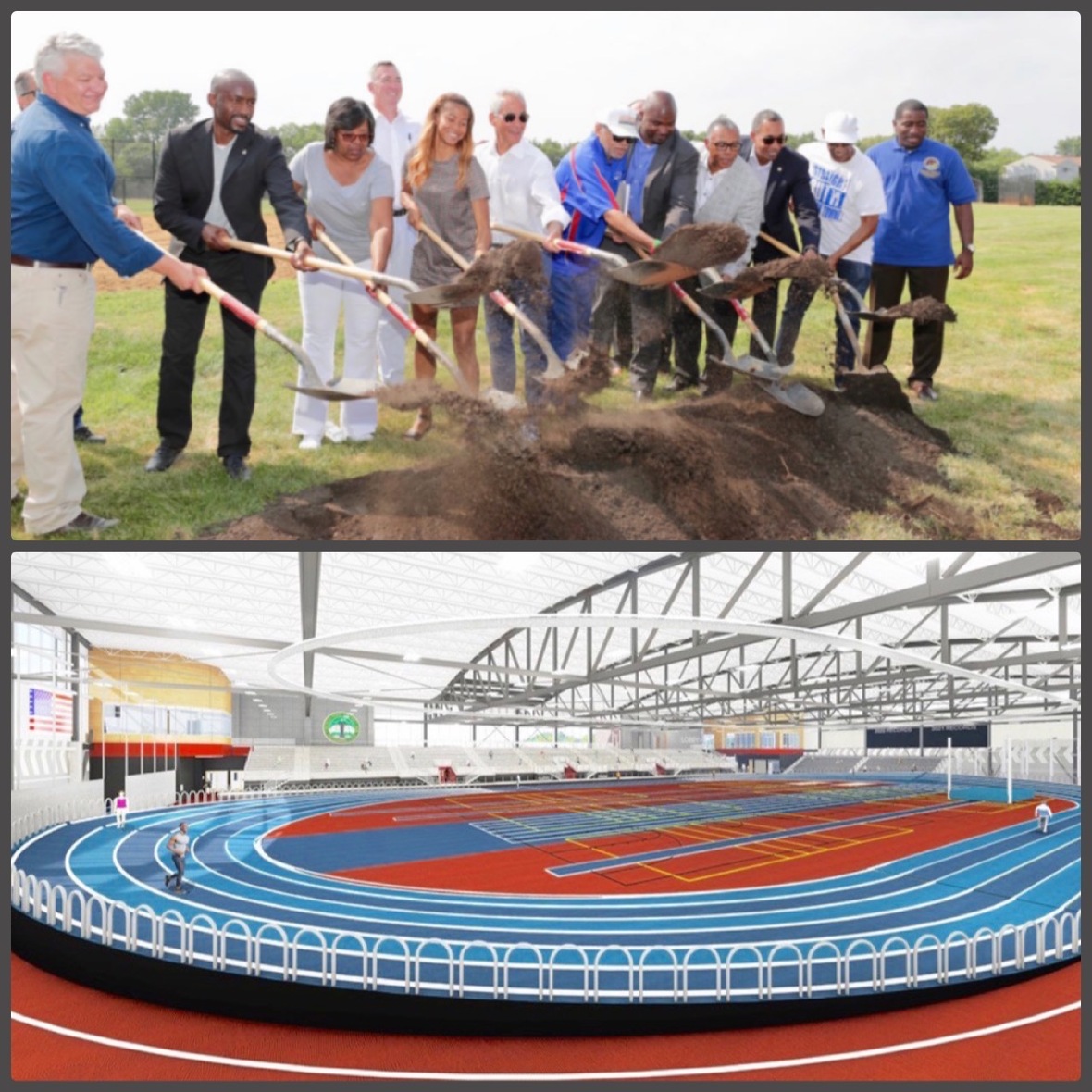
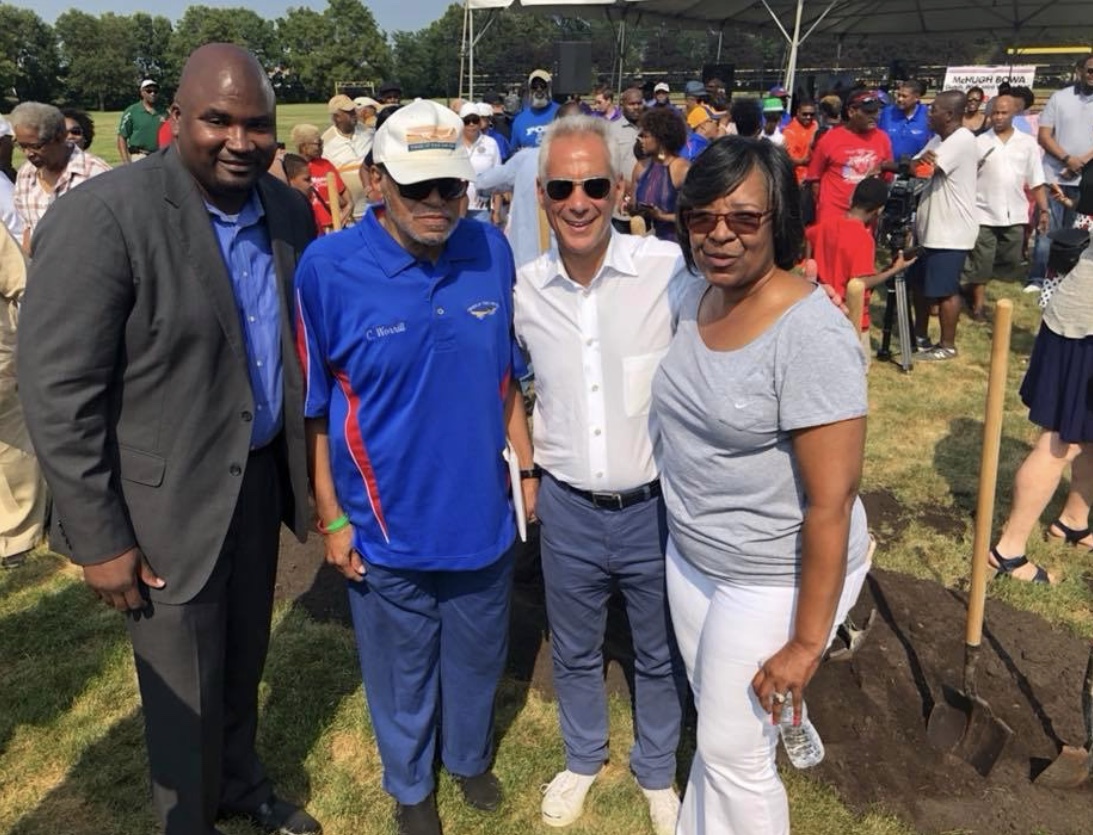
Conrad made the track come about along with his dearest friend, Elzie Higginbottom, and wanted it to be called the Conrad Worrill/Elzie Higginbottom Track at its location on 103rd and Cottage Grove in Gatley Park. Governor Pat Quinn provided $10 million in Illinois funds to the track and Melody Hobson provided $20 million more in philanthropic money.
The track is housed in the same building as After School Matters. In a real way, it is Conrad’s gift to the city. That track will change young lives and produce Olympic runners, as was Conrad’s dream. Track stars in Chicago high schools for years have had to run through the hallways of their schools; Conrad wondered what they could do if they had a full, state-of-the-art track at their disposal.
This was his vision and his work for the past 37 years and he got it done. He saw it finished, but didn’t get to see it open because of COVID-19 and underlying health problems. Conrad arranged for Elzie Higginbottom to take me to see the track. He wanted my opinion. I saw the track a week before his passing. The track is magnificent. Conrad said, “I think it is the best in the world.” I think he is right.
My last assignment was to get the track named after him and we did. And he is so deserving. Alderman Michelle Harris of the 8th Ward has requested Park District Superintendent Michael Kelly and Mayor Lori Lightfoot to name the track after Conrad.
Dr. Conrad Worrill was a tiger who had fight and fight and fight. But underneath all of the gruff stuff and cussing, he was a sweetheart, a man among men. I loved him and miss him already. Chicago is a better place because of him and for all that knew him and worked with him, we grew taller.
YES, Conrad.



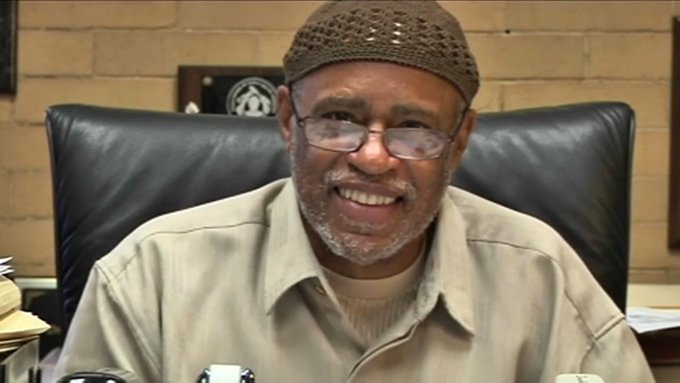


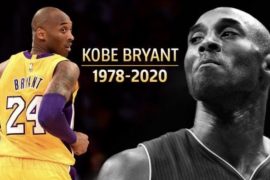
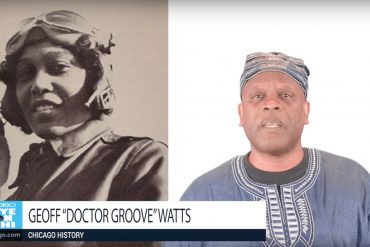
Dr. Worrill sounds wonderful. 😃
It seems that NEIU mostly cared about its main campus, El Centro and Lake County shared campus. 😑
Did CCICS ever consider going solo or joining Chicago State?